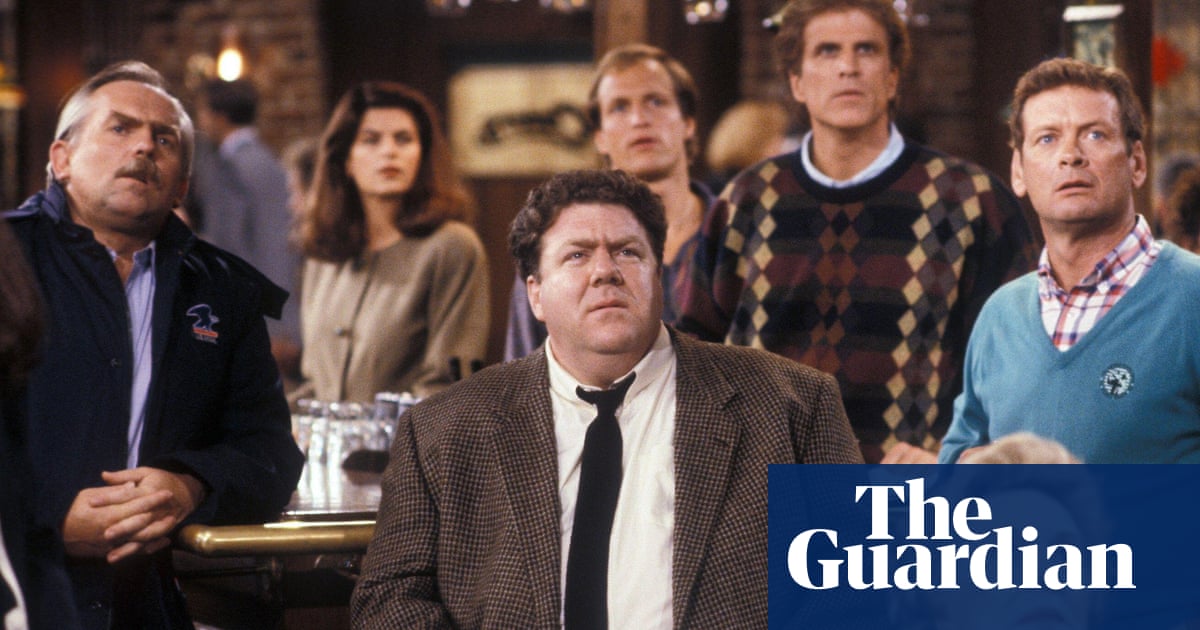From the first episode of Cheers to the very last, a decade later, George Wendt’s teddy bear barfly Norm Peterson was a fully formed sitcom dream. Like Howard Borden before him and Cosmo Kramer after him, his entrance alone was a highlight in every episode – and Wendt,who has died aged 76,appeared in all 275 episodes of Cheers, a feat matched by only Ted Danson and Rhea Perlman.
Every single time he opened the door, perpetually sweaty and tie always askew, the bar gave a huge cheer – “NOOOORM!” – as he trudged to his favourite stool for that first beer. Every weary walk to his seat came with a zinger. (The very first: “Norm! Whattya know?” “Not enough.”)
Though Norm was in every episode of Cheers, it is hard to identify a singular moment that made him a great sitcom character. Instead, the affection we felt was accumulative: for his world-weariness, his insistence on awful food, the loathing and love he felt for his unseen wife Vera – and of course, the simple pleasure he took in having a cold one with friends. (Which led to a bar tab so big by the final episodethat Sam threatened to send it to Nasa to calculate.)
Sign up for the fun stuff with our rundown of must-reads, pop culture and tips for the weekend, every Saturday morning
While we got to see only a little of Norm beyond the bar, so many of his best lines conveyed the great and ordinary tragedy that was his life: the unseen bad days at work, the unseen bad nights at home. “How’s life treating you Norm?” would be greeted with: “Like it caught me in bed with its wife”, “Like I just ran over its dog” or “Like a baby treats a diaper.” Once, when asked how he’s feeling, he responded: “I’m on top of the world … it’s a dismal spot in Greenland somewhere.”
“I have a hard time talking about Norm,” Wendt said in a 1989 interview. “It’s like he’s too close to me, but I don’t think he’s changed over the years. They moved him from being an accountant to [a] painter and decorator, but that was basically for some storylines. He’s still the same Norm. I think he’s the toughest to write for because he’s not really anything. He’s just funny.” But no man ever walked into a bar quite like Wendt.
Coach:“What’s shakin’, Norm?”
Norm:“All four cheeks and a couple of chins.”
Sam:“Norm! What brings you in at this time of day?”
Norm:“Same thing that always does.”
Sam:“A bit early for a beer, isn’t it?
Norm:“So, float a cornflake in it.”
Sign up toSaved for Later
Catch up on the fun stuff with Guardian Australia's culture and lifestyle rundown of pop culture, trends and tips
after newsletter promotion
Sam:“What’s happening, Norm?”
Norm:“It’s a dog-eat-dog world, Sammy, and I’m wearing Milk-Bone underwear.”
Woody:“Hey Mr Peterson, what do you say to a cold one?”
Norm:“‘See you later Vera, I’ll be at Cheers.’”
Sam:“What are you up to, Norm?”
Norm:“My ideal weight if I were 11 feet tall.
